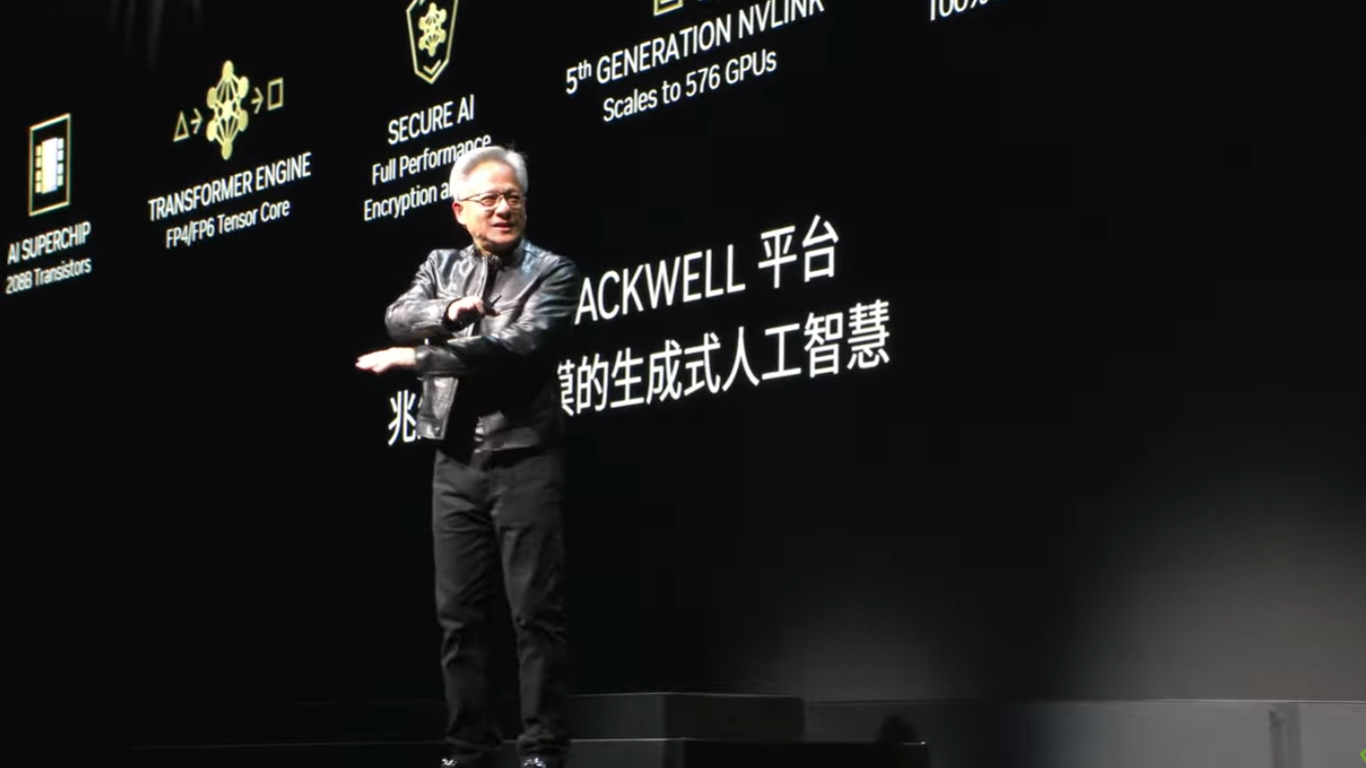We could be witnessing the death of the graphics card in real time right now, and I couldn’t be happier about it
Farewell, chunky GPUs that break my motherboard

Editor's Note
In the interest of fairness, I’d like to address some of the predictions I’ve made in the below article. Readers and industry figures alike have reached out, concerned that I’m claiming that lightweight laptops with integrated graphics are on the verge of rendering discrete graphics cards completely redundant.
That’s not going to happen anytime soon. While I stand by my assessment that iGPUs are improving at a faster rate than dedicated GPUs, there’s still a wide performance gap to be closed, and it’s likely that powerful dGPUs will remain prevalent in high-end gaming and industries such as animation for a long time yet. I’m talking about a timeline that will likely be measured in decades here, not months or years. It should be mentioned that the gaming GPU market is still growing right now, with Nvidia seeing 16% more gaming revenue this quarter compared to the same period last year.
Nvidia caught more flak than most in this article, and it’s only fair to point out that Team Green has been hard at work utilizing AI to actively improve the gaming experience. Tech like Nvidia G-Assist could prove extremely useful to gamers who don’t want to spend half an hour on a wiki every time they boot up a complex game, and I can’t avoid mentioning the time that Nvidia’s ACE in-game AI made me look like a fool for trying to trick it.
Above all else, I’d like to reiterate that this is merely an opinion piece: I’m not privy to the industry machinations going on behind closed doors at companies like Nvidia, AMD, and Qualcomm, I’m simply making observations and positing one possible future. There’s every chance that I’ll revisit this article in a year’s time and have to eat my words - something I will gladly do, because if there’s one thing I actually love to see the tech industry do, it’s prove me wrong.
Original article follows...

A little over two years ago, I wrote about how integrated graphics were the future of gaming. I stand by the things I said in that article - if anything, recent developments in the computer hardware industry have vindicated me, and further convinced me that we’re seeing the slow death of the graphics card.
That’s right: I think the dedicated GPU is going to go the way of the dodo. It’s an almost heretical thing to say as a long-time PC gamer and system builder; I own more than 500 games on Steam alone, and I’ve built a ridiculous number of PCs both for work and personal use over the years. I’m not afraid of being crucified by Reddit for saying that I both believe and hope that GPUs will die out, but I’d frankly understand if they did so. It’s a dramatic statement to make.
Getting the best graphics card is your number one priority when it comes to building a gaming PC, almost invariably the most expensive component in your system, and it’s a common aspiration among PC players to have a fully tricked-out liquid-cooled build with an RTX 4090 at the center of it all. So why am I so convinced that soon, we won’t need them anymore?
The great graphics shake-up
The answer to that question requires two separate parts: a look at the CPU industry, and a look at the AI industry. As anyone who knows me well will tell you, I think AI is kinda sus, so let’s start with the CPU side of the story.
Earlier this year, we saw the triumphant arrival of Qualcomm’s Snapdragon X Elite chips at Computex 2024. A new challenger in the laptop processor arena, something to finally take aim at Intel’s dominance in the market - something AMD has been trying and failing to do for years. It was a strong showing all around for the new chips, but the part that stuck in my mind the most was seeing an ultrabook without a graphics card run Baldur’s Gate at 4K.

Yes, CPUs with integrated graphics just keep getting better and better, even if Qualcomm itself insists that it doesn’t have real plans to take over the gaming market. It’s not just Snapdragon, either; Intel plans to hit back with powerful gaming performance on its upcoming Lunar Lake chips, and AMD has been enjoying huge success with its custom-tuned chips for PC gaming handhelds like the Asus ROG Ally X, Lenovo Legion Go, and Valve’s Steam Deck. Sure, these chips aren’t going to rival the best 4K graphics cards when it comes to high-end gaming, but they’re more than capable of providing a solid gaming experience.
There’s a key reason why gaming on integrated graphics is now actually feasible, and that’s upscaling software. Tools like Nvidia DLSS, AMD FSR, and Intel XeSS are what make this performance possible; my colleague John Loeffler saw an Asus ZenBook with an Intel Lunar Lake chip at IFA 2024 hit an average fps of 60 in Cyberpunk 2077 on 1080p on medium settings thanks to XeSS - a notoriously demanding game.
All in on AI
XeSS and DLSS (though notably not AMD’s competing FSR upscaler) are powered by AI hardware, which gives me a nice segue into my next point: AI is killing the gaming GPU industry, and if it continues at its current pace, it threatens to swallow it entirely.
Nvidia has been making waves in the AI space for a while now. Although a potential slowdown in AI expansion saw Nvidia shares drop last week, the company remains committed to its AI vision: CEO Jensen Huang’s Computex keynote was chock-full of AI-related schemes that may or may not destroy the planet, and the company keeps putting out new AI-powered tools as well as supplying hardware for the training of AI models around the globe. Don't get me wrong, there are some neat features for gamers being powered by AI - like the impressive HDR upscaling filter Nvidia showed off earlier this year - but the focus is on industry application.

Jensen isn’t alone, either. Earlier this week, AMD Senior VP Jack Huynh revealed in an interview that AMD is seriously targeting the AI market, and a knock-on effect of this is that Team Red will be withdrawing from the high-end GPU race, so we probably won’t be getting a Radeon RX 8900 XTX, at least not anytime soon. Instead, AMD’s consumer efforts will be focused on the budget to midrange space - further closing the performance gap between their discrete graphics cards and new integrated processor graphics (iGPUs).
An ignoble end for the humble graphics card?
Simply put, the increasing demand for GPUs for AI projects is incompatible with a future where GPUs are necessary for gaming PCs. It’s been clear for a while now that the focus is no longer on consumer hardware (especially for Nvidia), but with iGPUs improving at a faster rate than traditional graphics cards, it won’t surprise me if RTX 5000 is the final generation of Nvidia GPUs aimed at gamers.
After all, nothing lasts forever. Sound cards and network adaptors were an integral part of custom PC builds for years, but those eventually got swept away as motherboards improved and started to integrate those features. When it comes to the requirements of the average gamer, we’re likely not far off from CPUs that can handle everything you need - even if that’s gaming at higher resolutions.
I won’t weep for the dedicated GPU when it dies, either. Not only are they very expensive, but being able to improve my gaming performance by simply swapping out a single chip would make future system upgrades quicker and easier, as well as allowing for more compact PC builds. Yes, I love my chunky RGB-filled tower, but it takes up too much damn space on my desk.
Get daily insight, inspiration and deals in your inbox
Sign up for breaking news, reviews, opinion, top tech deals, and more.

Christian is TechRadar’s UK-based Computing Editor. He came to us from Maximum PC magazine, where he fell in love with computer hardware and building PCs. He was a regular fixture amongst our freelance review team before making the jump to TechRadar, and can usually be found drooling over the latest high-end graphics card or gaming laptop before looking at his bank account balance and crying.
Christian is a keen campaigner for LGBTQ+ rights and the owner of a charming rescue dog named Lucy, having adopted her after he beat cancer in 2021. She keeps him fit and healthy through a combination of face-licking and long walks, and only occasionally barks at him to demand treats when he’s trying to work from home.